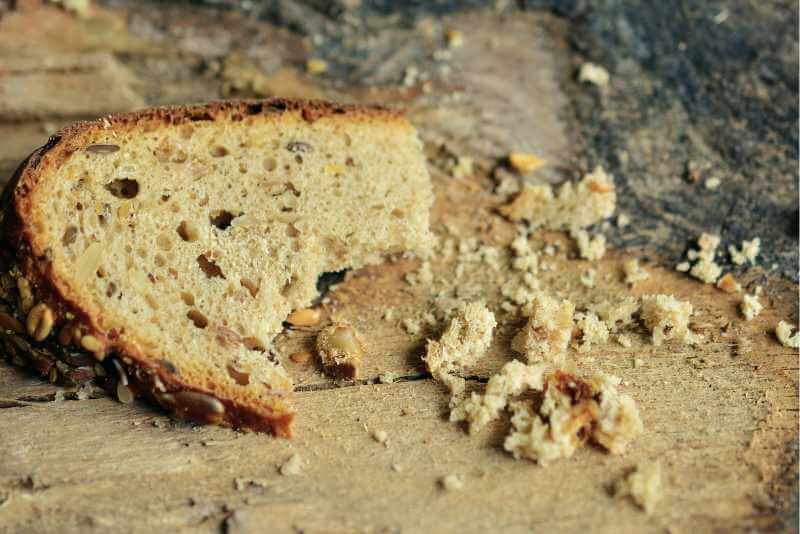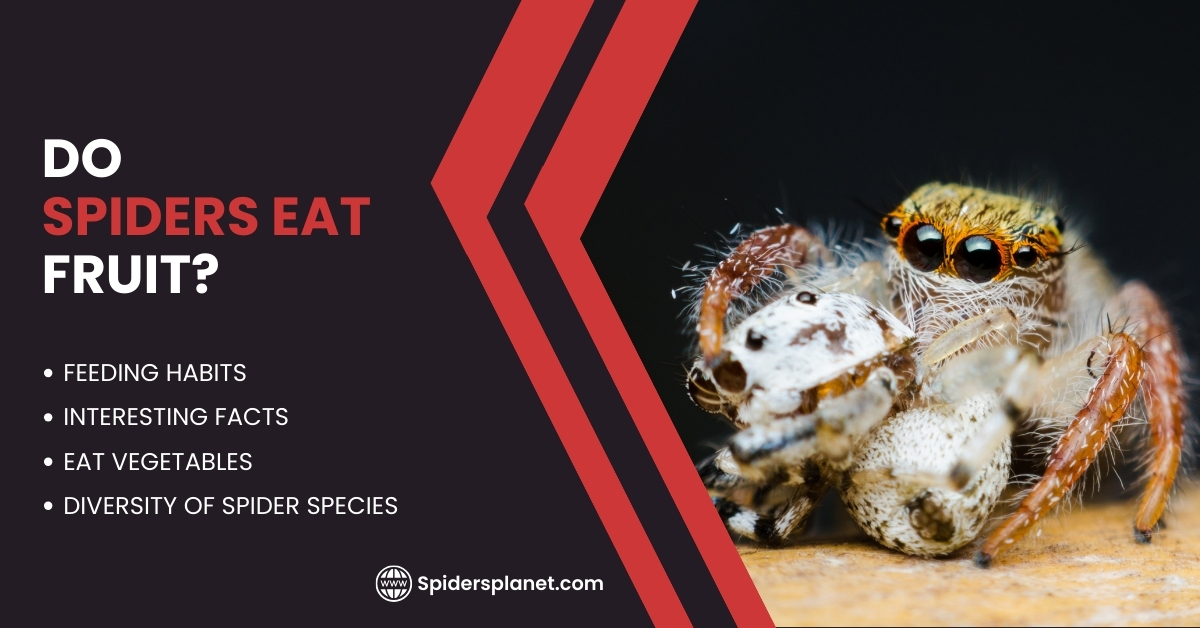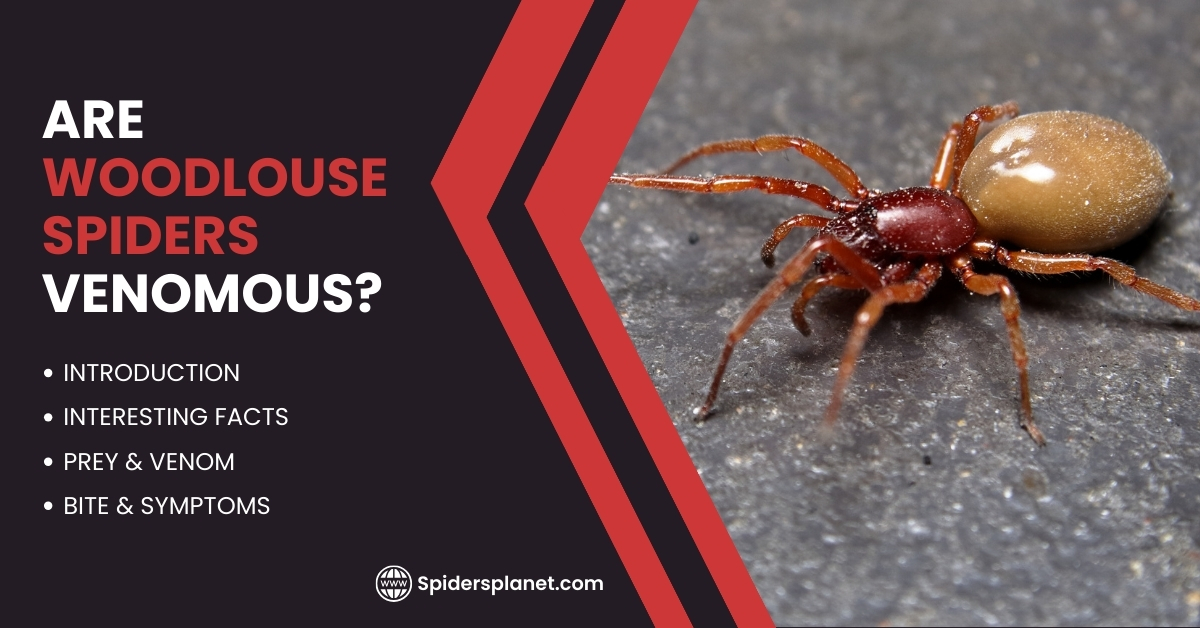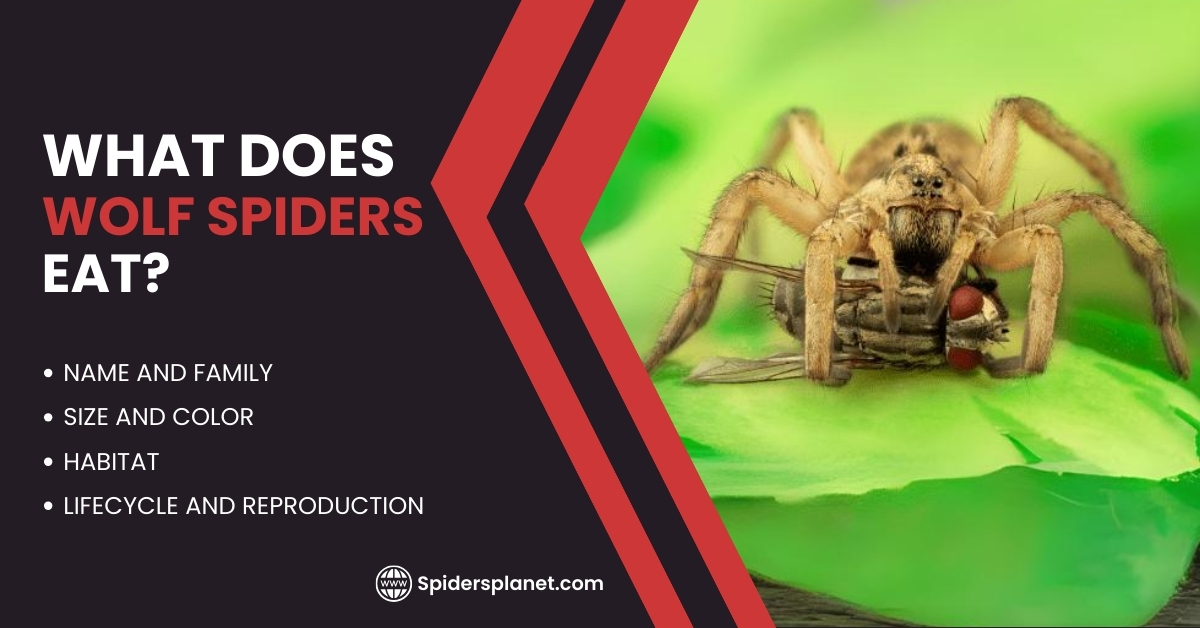Are you wondering if spiders can eat bread? As many pet owners believe that providing their pets with food scraps is a kind gesture, you might be hoping to feed your spider the extra bits of toast or bread crumbs from your lunch. But, unfortunately, this isn’t advisable!
As we know, bread is considered a relatively simple and common food for most people, which raises an interesting question when it comes to spiders.
While there is limited research on the subject, from what we know feeding your spider bread can be fatal and below we will explain why.
Why Spiders Can’t Eat Bread?
Mouth Structure
One of the main reasons why spiders cannot eat bread is due to their mouth structure. Unlike humans, spiders do not have teeth to chew or break down solid food.
Instead, they possess structures known as chelicerae, which function more like fangs. These fangs are primarily used to inject venom into their prey, rather than for chewing food.
The fangs pierce their prey and the venom liquefies the insides, which the spider then sucks up. Consequently, a spider is unable to chew or bite off a piece of bread.
Digestive System
The second reason lies in their digestive system. you see, spiders have different digestive systems than humans and other animals and need specific nutrients in order to stay healthy.
Spiders have a rather unique way of consuming food. They rely on external digestion, where they inject enzymes into their prey, which breaks down the tissues into a liquid form.
This liquid is then sucked back into the spider’s stomach and into their stomach. Their digestive system is simply not designed to process solid food or complex carbohydrates found in bread.
Dietary Needs
You also need to think about their diet. Spiders require a diet that’s rich in protein, which they typically get from eating small insects and other arthropods.
This food source provides them with the necessary nutrients they need to survive, including amino acids for growth and repair, and lipids for energy.
When it comes to Bread, it’s largely composed of carbohydrates and lacks these essential nutrients that the spiders require. This means feeding them bread will actually cause what’s called a nutritional deficiency, a serious health issue.
So, while it might seem intriguing to imagine a spider nibbling on a piece of bread, it’s important to remember that their biological makeup and dietary needs are vastly different from ours.
Potential Risks Of Feeding Spiders Bread
It’s very likely that if you offer your spider bread they will refuse to eat it. But on the off chance that they do you should be aware of the risks. Feeding your spider bread can lead to several health risks, each posing a threat to their wellbeing.
- Improper Digestion: As before, spiders have a specific way of consuming their food, and solid foods like bread cannot be digested in a liquid form, leading to potential digestive issues that can cause blockages in their intake pathway, preventing them from eating properly.
- Nutritional Deficiency: Because bread, is high in carbohydrates has little to no protein, and lacks all the essential nutrients it needs this could lead to things like stunted growth, and weakened immune function.
- Molting Difficulties: Molting is a critical process in a spider’s life where they shed their old exoskeleton and form a new one. This requires adequate nutrition, particularly protein. If you feed your spider bread, it could result in incomplete or problematic molts, potentially leading to deformities or even death.
- Choking Hazard: If the spider was to eat bread the small particles can obstruct a spider’s narrow feeding tube, particularly in smaller species. This could potentially choke them or block their intake pathway, both of which are serious threats to their survival.

Think Of Their Nutritional Needs
When considering what to feed spiders, it’s essential to keep their nutritional needs in mind. Spiders are carnivorous creatures that require a diet rich in protein and lipids. Here’s a closer look at their dietary requirements:
- Protein: Protein is a crucial part of a spider’s diet. It’s necessary for growth, repairing body tissues, and contributing to a healthy exoskeleton. Spiders typically get their protein from consuming insects and other small arthropods.
- Lipids: Lipids, or fats, provide spiders with energy and also contribute to the health of their exoskeleton. They obtain these lipids from their prey.
- Vitamins & Minerals: Spiders also need small amounts of certain vitamins and minerals, which they obtain from their prey. These micronutrients play various roles in bodily functions, such as metabolism and enzyme regulation.
- Water: While spiders get most of their water from their food, they also drink water directly, especially in dry environments. Some species may even absorb moisture from the air.
Given these specific dietary needs, it’s clear why bread – a food high in carbohydrates but low in protein, lipids, and many essential micronutrients, is not suitable for spiders.
It’s always best to feed spiders a diet that closely mimics what they would eat in the wild to ensure they get the nutrients they need for optimal health.
Alternatives To Bread For Spiders
Understanding that bread is unsuitable for spiders, here are some better alternatives that align with their natural diet and nutritional needs:
The best food for spiders is generally small insects, however, it really depends on the species and size of your spider. Here are some alternatives…
- Flies
- Mosquitoes
- Moths
- Butterflies
- Small beetles
- Crickets
- Grasshoppers
Just remember to provide a sufficient amount of fresh water for your spider. While hydration can be obtained through their prey, it’s still necessary to supply spiders with clean water in their enclosure.
What Should You Do If Your Spider Accidentally Eats Bread?
Now you might be wondering ok so how does a spider accidentally eat bread? Well, if you are someone who likes to let your spider out of its cage from time to time, there is a small chance it could eat some leftover bread that’s been left out on the side.
If this does happen don’t panic! Keep a close watch on your spider, observing its behavior, and look out for any signs of distress or changes in its usual activities. This could include alterations in movement patterns or a decrease in appetite.
While monitoring, make sure your spider stays well-hydrated. Access to water can be especially crucial if the bread has caused any digestive issues.
Take Note: If you notice any signs of distress or if your spider’s condition doesn’t improve over time, it might be necessary to consult with a veterinarian who specializes in arachnids or exotic animals. They can provide expert advice and may offer specific treatments if needed.
Once the incident is resolved, it’s essential to return your spider to its regular diet of suitable insects and arthropods. This not only ensures they’re getting the required nutrients but also helps to counteract any potential negative effects from unsuitable food.
Prevention is always the best course of action, so always be cautious about what goes into your spider’s enclosure. Stick to their natural diet to keep them healthy and thriving.
Conclusion
So I hope this article has answered the question of whether spiders can eat bread. In the end, feeding spiders bread is not only unnecessary but also an improper way to care for these creatures.
If you are new to owning a spider and are unsure what to feed it there’s a whole category on this site regarding what spiders eat. Go to the main menu to find out more. Happy exploring!



